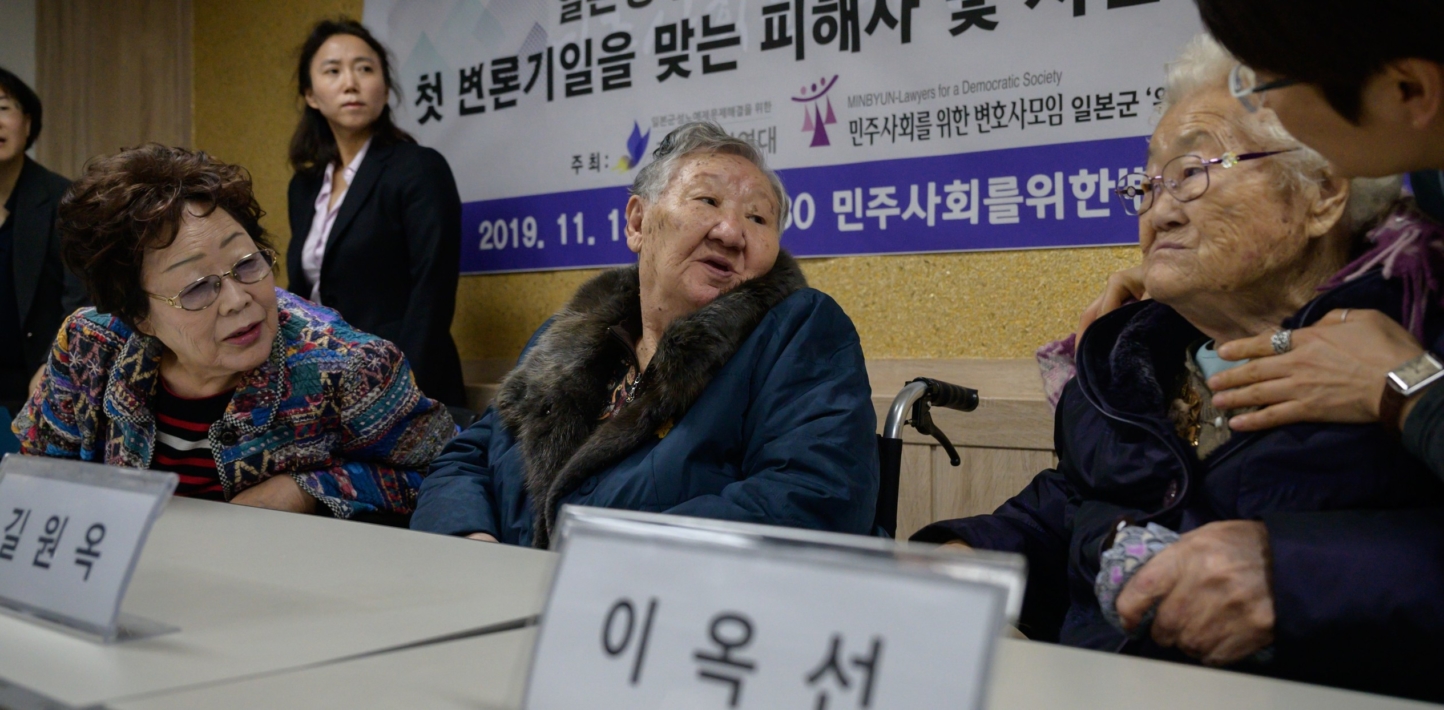Responding to today’s South Korean court ruling that dismissed claims against the Japanese government to pay damages to women and girls who were forced into sexual slavery by Japan’s military before and during World War II, Amnesty International’s East Asia Researcher Arnold Fang said:
“Today’s ruling is a major disappointment that fails to deliver justice to the remaining survivors of this military slavery system and to those who suffered these atrocities before and during World War II but had already passed away, as well as their families.
“This ruling runs contrary to a decision by the same court in January, which required Japan to accept legal responsibility for its systematic sexual enslavement that amounted to crimes against humanity and war crimes. What was a landmark victory for the survivors after an overly long wait is again now being called into question.
“More than 70 years have passed since the end of World War II, and we cannot overstate the urgency for the Japanese government to stop depriving these survivors of their rights to full reparation and to provide an effective remedy within their lifetimes. Only four of the 10 survivors who filed this case in 2016 are still alive.”
Background
“Comfort women” is a euphemism used to refer to the up to 200,000 girls and women – a significant proportion of them Korean – who were forced to work in brothels run by the Japanese military before and during World War II.
Today’s ruling came as a surprise to many, as a different chamber of the Seoul Central District Court made another ruling in January ordering the Japanese government to provide compensation to the survivors of this system of sexual slavery. The ruling was made in a separate case filed by 12 other survivors in 2016.
Today’s ruling concludes a lawsuit also filed in 2016 by 20 individuals, including survivors of the atrocities. The first hearing took place in November 2019, with Amnesty International making a submission to the judges. The ruling is subject to an appeal.
Over the last 30 years, survivors from South Korea, Taiwan, the Philippines, China and the Netherlands have filed a total of 10 lawsuits against the Japanese government in Japanese courts. However, the survivors eventually lost in all of these cases before winning the case in South Korea in January.
In the words of the other court ruling on 8 January 2021 that granted the claimants damages, the system caused its survivors “extreme, unimaginable mental and physical pain”. The court also held that “even if the acts of this case were sovereign acts, state immunity cannot be applied.”
During their systematic sexual enslavement, girls and young women were raped, beaten, tortured and killed, while many took their own lives. Survivors often lived much of their lives in isolation, humiliation, shame, stigmatization and often extreme poverty.
Today’s ruling bolsters the position of Japan, which maintains that its bilateral agreement with the previous administration in South Korea in 2015 had resolved the issue “irreversibly”, and that the principle of state sovereignty shields it from such claims in foreign courts. That agreement, however, did not acknowledge violations of human rights law committed by Japan, nor accept legal responsibility. Victims also claimed it lacked a genuine apology and was negotiated without their meaningful participation.
In its 2005 report, “Still Waiting After 60 Years”, Amnesty International recommended that “affected states should ensure that survivors are able to bring claims directly against the government of Japan in their national courts by enacting national legislation”.
It further called on states to “ensure that such laws prohibit any state immunity for violations of international human rights law and international humanitarian law”.


